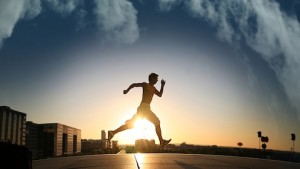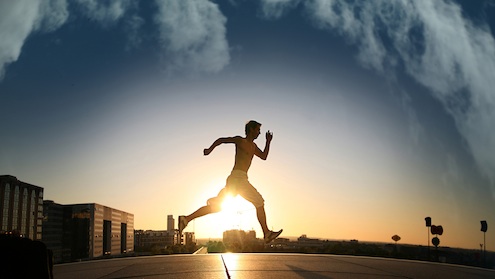 Hundreds of leading international and local physical activity, public health, sports medicine and science experts are set to descend on our nation’s capital next week to present ground-breaking research and highlight critical public health issues.
Hundreds of leading international and local physical activity, public health, sports medicine and science experts are set to descend on our nation’s capital next week to present ground-breaking research and highlight critical public health issues.
Hosted by Sports Medicine Australia, be active 2014 (15 – 18 October, Canberra) will showcase the latest cutting-edge practices and research in sports medicine, sports science and injury prevention and will shine a spotlight on key health issues including obesity, sedentary behaviour in adults and children, screen time and inactivity, concussion and drugs in sport.
Sports Medicine Australia CEO Nello Marino said the research presented at be active 2014 will drive public health policy and encourage all Australians to lead more physically active and healthier lives.
“With Australia’s obesity levels growing at one of the fastest rates in the world, and physical inactivity costing around $13.8 billion per year, it is critical that we utilise new research in these fields to help influence and implement public health initiatives to drive behaviour change and combat preventable chronic disease,” Mr Marino said.
More than 300 research presentations will be delivered at be active 2014, with keynote speakers including acclaimed international experts such as physical activity and sedentary behaviour researcher Professor Stuart Biddle, exercise as cardiovascular medicine researcher Winthrop Professor Daniel Green and walking behaviour expert Associate Professor Catrine Tudor-Locke.
New research to be presented at be active 2014 includes:
- iMobile technology and immobile students: How mobile technology is changing the primary school classroom physical environment
- Associations between sports participation and mental health in childhood
- Unhealthy product sponsorship of Australian national and state sports organisations
- Maths on the move: Helping kids move more, learn more
- Does moving to a new health promoting building change physical activity behaviours?
- Sitting time among young children in childcare
- Active video games: Are they an effective approach to reducing sedentary time and increasing physical activity in children?
- Depression and body image in children
- Reflections on two decades of concussion research, policy and practice
- Association between neighbourhood typologies, physical activity, sedentary time and TV viewing among children
- The impact of sports injuries on a regional health service
- Older adults’ views on sports and physical activity complexity
- Prevalence of early knee osteoarthritis one year after ACL reconstruction
For more information on be active 2014 (15 – 18 October, Canberra): www.beactive2014.org




















